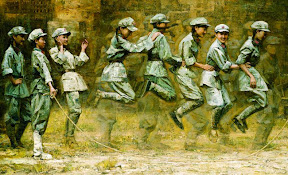Rob Ford behaves badly in public, is mocked in the media and ignored by the Premier. Nevertheless, he still has the support of voters in Toronto and might win another term in office. Even some teachers in Toronto approve of his performance in office although not of his behaviour in public. Why is that?
It turns out that Rob Ford has listened to his base and
reduced some high fees and/or taxes that were set inappropriately and way too
high. I won't get into particulars on living expenses in Toronto but I can
provide some details on the inappropriate and outrageous fees faced by people
doing legal research that makes litigation so expensive.
People have some choice as to where they file their legal papers. So the first thing one has to do is find where the papers have been filed and get the file number. Some court houses will give you this information over the phone. Toronto will not. So, one either has to go to Toronto or hire someone in Toronto to visit the court house and search for the information. This is time consuming and can get very expensive especially if the search is fruitless.
At the court house in Toronto, there are a few terminals to search for cases and some are attached to a printer. In other court houses, there is one terminal and no printer so you have to take notes. If many people show up to use terminals and print off information, there is a long wait for access. Once you get access to a terminal, it can still take a lot of time finding the case in question. Retrieval from the database is very slow. If the name is a common one, many irrelevant cases show up. Sorting through them is time consuming. Once the information has been found and printed off, you take it to another room and fill out a form to get access to the file. If it is very busy, there is a wait for the file to arrive. It costs $10.00 to read the file no matter how large or small or whether it turns out to be relevant to your research. A large file can take hours of reading and that adds to the expense in time consumed. It costs $.50 a page to make any copies if you make your own copy and $1.00 a page if you request that copies be made for you. In Toronto, one at least has this choice. In other court houses, the photo copying is done for you at $1.00 a page. [In Toronto, the photocopier is provided by an outside entity so it would appear that the money from the copying does not go into improving access to public documents.] Each visit to a court house easily takes half a day and that's dealing with only one file. Photo copying can easily cost $30.00 if the material is relevant and, even then, there is a tendency to copy less not more. If you have to return and get access to the same file, you have to pay the $10.00 read fee all over again. You can imagine how expensive in time and money this process can be. Have I mentioned travel and parking costs? Exorbitant in Toronto, manageable in other municipalities.
People have some choice as to where they file their legal papers. So the first thing one has to do is find where the papers have been filed and get the file number. Some court houses will give you this information over the phone. Toronto will not. So, one either has to go to Toronto or hire someone in Toronto to visit the court house and search for the information. This is time consuming and can get very expensive especially if the search is fruitless.
At the court house in Toronto, there are a few terminals to search for cases and some are attached to a printer. In other court houses, there is one terminal and no printer so you have to take notes. If many people show up to use terminals and print off information, there is a long wait for access. Once you get access to a terminal, it can still take a lot of time finding the case in question. Retrieval from the database is very slow. If the name is a common one, many irrelevant cases show up. Sorting through them is time consuming. Once the information has been found and printed off, you take it to another room and fill out a form to get access to the file. If it is very busy, there is a wait for the file to arrive. It costs $10.00 to read the file no matter how large or small or whether it turns out to be relevant to your research. A large file can take hours of reading and that adds to the expense in time consumed. It costs $.50 a page to make any copies if you make your own copy and $1.00 a page if you request that copies be made for you. In Toronto, one at least has this choice. In other court houses, the photo copying is done for you at $1.00 a page. [In Toronto, the photocopier is provided by an outside entity so it would appear that the money from the copying does not go into improving access to public documents.] Each visit to a court house easily takes half a day and that's dealing with only one file. Photo copying can easily cost $30.00 if the material is relevant and, even then, there is a tendency to copy less not more. If you have to return and get access to the same file, you have to pay the $10.00 read fee all over again. You can imagine how expensive in time and money this process can be. Have I mentioned travel and parking costs? Exorbitant in Toronto, manageable in other municipalities.
Lawyers pass this expense onto their clients. Independent researchers and people representing themselves pay out of pocket. This expense in time and money impacts people with limited means. It restricts their access to public documents and their ability to acquire relevant information. It hurts their ability to defend themselves and makes a mockery of their Charter rights to "equal protection and equal benefit of the law without discrimination". It raises legal fees to the point that thousands of people can't afford a lawyer and have to represent themselves. Discrimination against poor people is rampant and limits their access to just about everything in our society. Unfortunately, limiting access to legal aid is not illegal in Canada.
So why is the process outlined above so expensive? The courts, the clerks and maintenance of files are fixed costs. They are already paid for out of general taxes because they are a public necessity and a public benefit. It doesn't matter whether anyone shows up or five people show up or a hundred and five show up to look at files. The fixed costs don't change. There is no reason to charge a user fee to read a file and $10.00 is excessive and outrageous for this service. Why do people have to use Public View Terminals at the court house? Why cannot this search be conducted on-line from home or at least from the nearest public library? Why can't the files be available in a PDF format and read on-line?
This is but one example of inappropriate and excessive
fees that makes it difficult for even what's left of the middle class to make
ends meet. So, when a politician shows up promising to reduce some fees or
taxes and actually does it, why wouldn't the voters be prepared to vote him
back in regardless of his personal behaviour? In this respect, Rob Ford is no
different than Bill Clinton. Both behaved inappropriately but their supporters
didn't care because they were focused on what really mattered to them. With
Clinton, people cared more about the performance of the economy. With Ford,
people care more about bringing down inappropriate and excessive fees.
And the message to union members and union bosses is this. In Toronto, bringing down excessive fees is important to the ordinary voter. If that is done at the expense of union jobs, pay and pension plans, you have no one to blame but yourselves. If you want to maintain your privileged position then you need to help the ordinary voter. At every bargaining round, and at every election, at least one item on the agenda must speak to the needs of the people not represented at the table. And, to determine what the people want and need and will support, you need to stop speaking to the politicians and start talking and listening to the people. That is the only way forward.
And the message to union members and union bosses is this. In Toronto, bringing down excessive fees is important to the ordinary voter. If that is done at the expense of union jobs, pay and pension plans, you have no one to blame but yourselves. If you want to maintain your privileged position then you need to help the ordinary voter. At every bargaining round, and at every election, at least one item on the agenda must speak to the needs of the people not represented at the table. And, to determine what the people want and need and will support, you need to stop speaking to the politicians and start talking and listening to the people. That is the only way forward.
Martha
Follow the Toronto Mayor Rob Story as it unfolds on my blog @ This link!
COMMENTS

























































